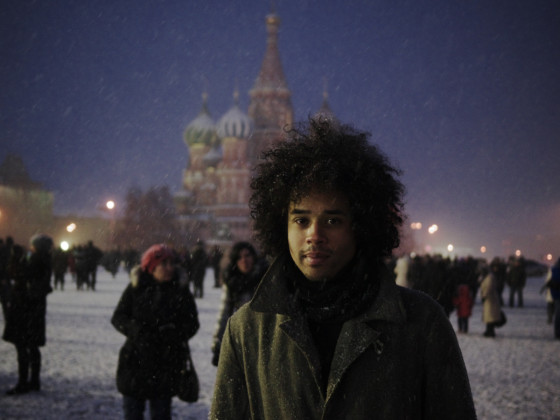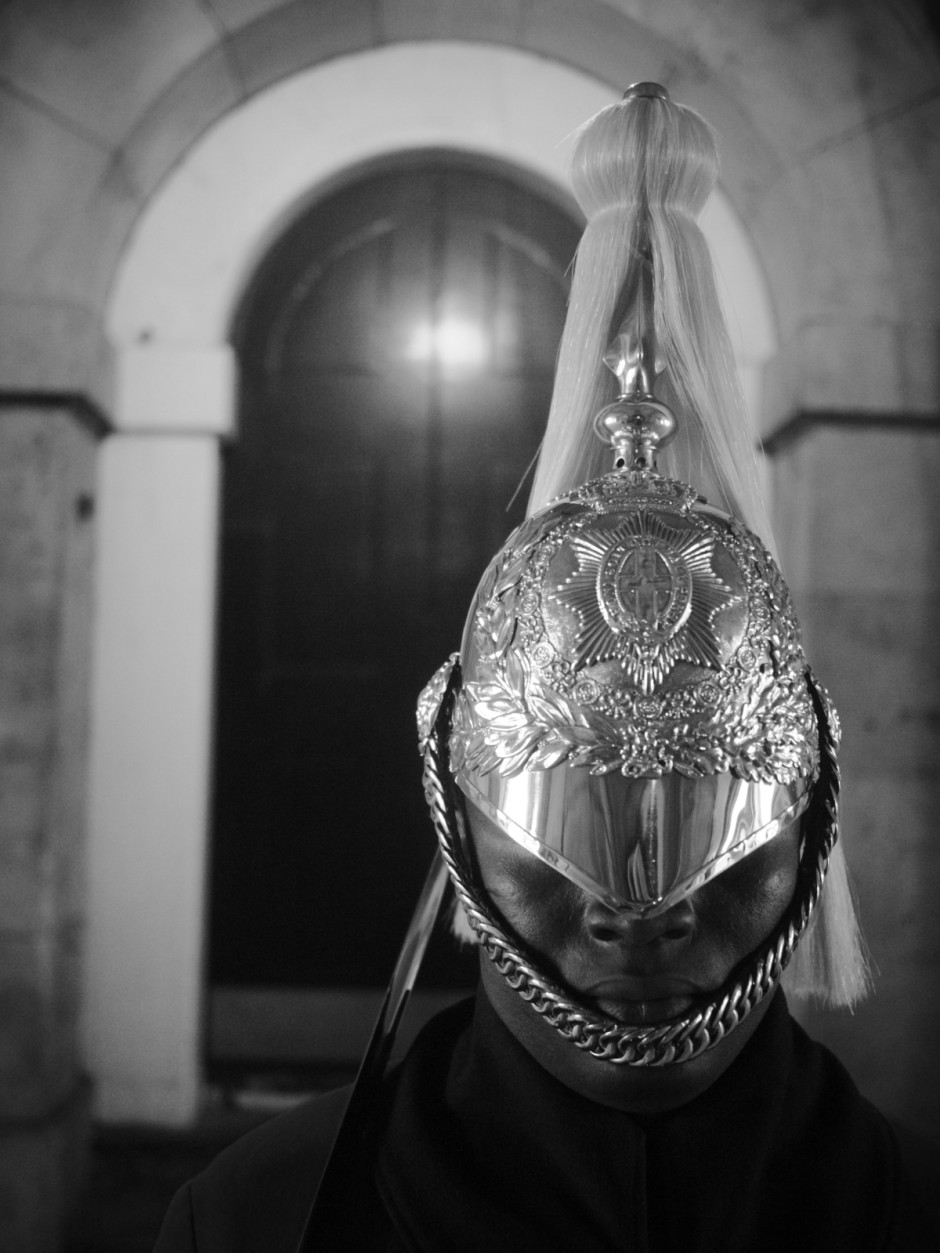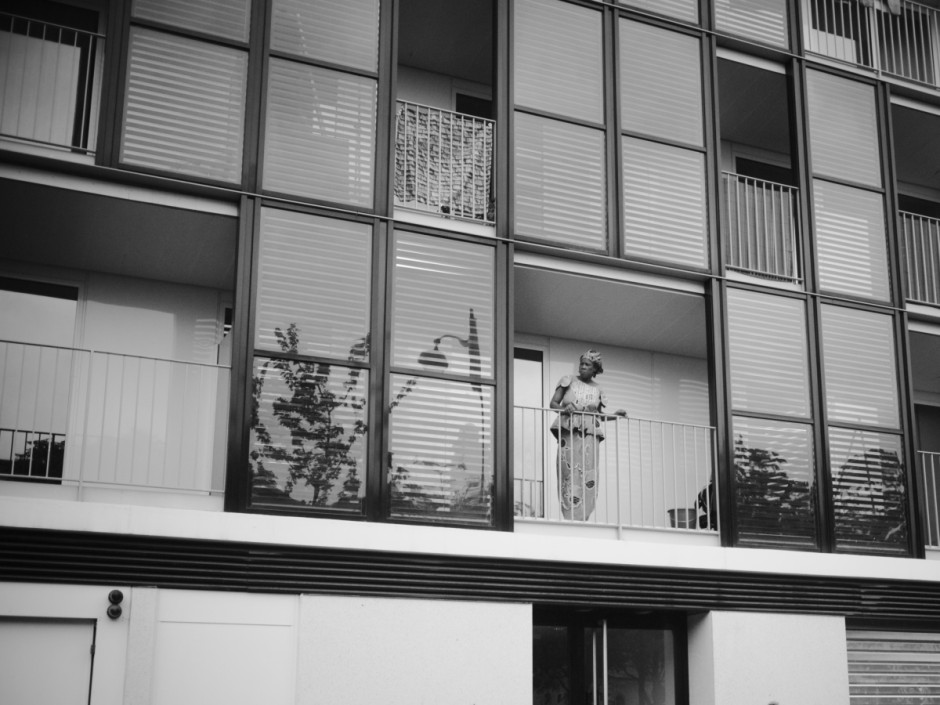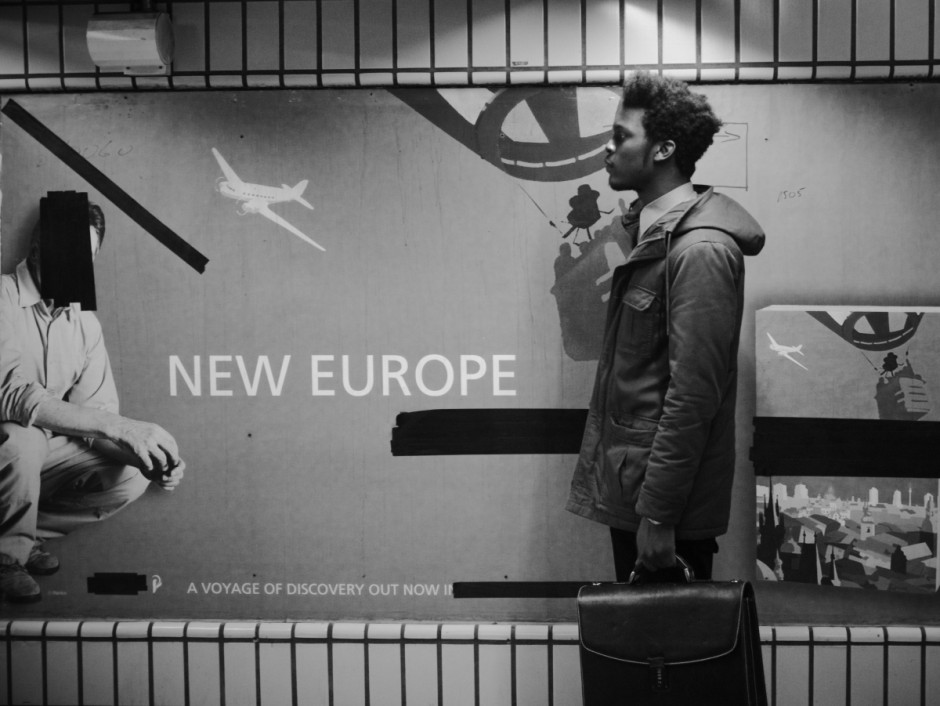JOHNY PITTS is a writer, photographer, and broadcast journalist interested in issues of Afro-European identity. He won a Decibel Penguin Prize for a short story included in the The Map of Me, a Penguin books anthology about mixed-race identity. He recently collaborated with author Caryl Phillips on a photographic essay for the BBC and Arts Council England dealing with London and immigration, and curates the online journal Afropean.com, for which he received the 2013 ENAR foundation (European Network Against Racism) award for a contribution to a racism-free Europe. He currently hosts a youth travel show for the BBC and recently finished the first draft of a travel narrative about a five month trip through ‘Black Europe’, due to be released in 2015. john@afropean.com

Defining the Role of Afropeans in Modern Travel Writing
Bani Amor: Tell us about yourself. How would you describe your work and the impetus behind it?
John: Well, I hold American and British passports, I was raised between London and Sheffield in the UK. My father is black, my mother is white, and I was born on the cusp of Capricorn and Aquarius, so even my star sign dual! So I identify with W.E.B DuBois’ double consciousness stuff. I feel as though I kind of grew up in that liminal terrain between cultures, races, and spaces, and I suppose my work is all about trying to find some kind of coherence in that liminal space. Instead of seeing myself as half-this or mixed-that, I try to solidify the cultural ground I walk on as something whole. And that is where this term ‘Afropean’ comes in.
It is a platform to engage with — and acknowledge the duality of — my influences, while bringing them together as something new. I didn’t create the term Afropean, so in a way I’m working off the backs of a Generation X who came of age in the ‘90s. People like Neneh Cherry, Zap Mama, Stephen Simmonds, Les Nubians…artists and musicians who brought forth new aesthetics that were a mix of African and European influences. The word was being used, but it hadn’t really entered the popular lexicon, so I snapped up afropean.com and tried to create a community around that…ee if there was a way for Afro-Europeans to get a sense of themselves in the same way I feel African Americans did.
Bani: Do people use the word in real life? I mean, outside the internet.
John: I’m hearing it more and more. They seem to be most comfortable using it France. To be honest, though, I don’t necessarily use it in on a day-to-day basis. It’s more an inclusive platform from which we can all engage in the idea of a Europe more in tune with its multicultural, multi-racial population. I’m seeing it online more and more though and, in a way, for better or worse, the line between ‘real life’ and our digital lives is getting more and more blurred.
Bani: Of course.
John: So to see it growing online, must be to see it growing on the streets, and in people’s minds. Our community on Facebook and the subscribers to the website is growing exponentially.
Bani: Which speaks to a great need for this type of platform.
John: I think so. It’s weird – growing up in the ‘90s as a young black person, there were very few celebrations of black culture. At least, it never entered the mainstream really. Anything mainstream that could be called ‘black’ came from the States. It’s still that way now, to a certain extent, but things are changing. I think Afropean is one of many outlets taking advantage of this Wild West-era of the internet, where we have the opportunity to cut out the people controlling the media and tell our own stories.
Bani: Which is a main obstacle in trying to build (cross-cultural) community – the representation in media (or lack thereof) sends a message to marginalized people that they don’t exist, or do, but in limited, stereotypical ways.
John: Exactly! I work in TV, and also as a writer, and the classic thing you hear is “Oh, we already did a show or book about black people 15 years ago, we don’t need another one…”
Bani: Because a black person can’t tell a story in the mainstream without it being an “identity narrative.”
John: Exactly, and as you know, it isn’t just ethnicity, but also gender, sexual orientation, and so on.
Bani: The default narrator is a straight white male.
John: For sure. And within the sphere of ‘black culture’ it can sometimes feel that the default narrator is African American. Something that I’d like to make clear though, is that I don’t really see myself being part of that whole African American hegemony argument. So often you’ll see a division at black-consciousness conferences between African Americans and Afro-Europeans. Afropean is about being inclusive, and encouraging dialogue, and even though there was / is more room made for black American culture in Europe than black-European culture, I think the contribution of African Americans is certainly valuable and, at times, even a template of how we might be able to get a bit more unity and exposure in the afro-European community.
Bani: Word. I mean that it’s interesting to me that black-American history tends to overshadow Afropean “consciousness” but more so that in other regions (Asia, Latin America) black-American “culture” has been commodified and exported like a lifestyle that can be bought and sold. Yet when we look to local movements to progress black communities, it’s like, a completely divorced thought.
John: Yes. One of the funny things I noticed on my voyage through ‘black Europe’ is that very often you’d find Ghanaians or Nigerians talking and dressing like parodies of African Americans because it’s more culturally acceptable to be African American around the world, and especially in Europe, than it is to be African. And they tend to assume that very commodified and exported idea African American culture you’re talking about.
Bani: About your travels, you took a five month trip through “black Europe” to document Afropean culture across the continent, is that right?
John: Exactly. After seeing these interesting Afropean images creep through the stereotypical black images in the media…in places like Trace magazine, and in some of the great Afropean soul and hip hop, I wanted to see where this stuff was born…was there a community to liaise with? What does it mean to be Afropean? Is there any point in trying to bring the black European diaspora together, or are we all too different? These were some of the questions I sought to answer on my travels.
Bani: What were the results? I’m sure it’s too long and nuanced to answer here (that’s why you have a book-type project in the works, no?) but did you feel a sense of collective identity? Were there communities to liaise with?
John: Yes, it is complicated, but ultimately I did find commonality through people living life on the margins. We were similar by virtue of facing the same problems: old, stubborn European countries clinging on to outdated self-images and national identities. That’s the thing about Europe — it is so old, and obviously its colonial history heavily shaped the way many European countries view themselves and ‘the other’. And it’s a case of teaching an old dog new tricks.
Bani: Do people create problems for you in reading your identity outside of Europe? As in assuming you’re not from there? Does that happen within Europe too?
John: I had an interesting chat with a black British friend living in New York recently and he told me that I’d have no problem with white people in America at all, as soon as they heard my accent. Because when they heard me speak with a British voice, the blackness disappears. It is a blackness that Americans don’t have a shared history with, so they feel more relaxed. I thought that was interesting, and during the many times I’ve been to America, I’ve never been victim to any overt racism.
Because of my background, which actually also has Scottish, Irish, and Cherokee American roots, I find that half the world actually looks like me. When I was in Fiji, they thought I was Fijian, when I was in Morocco, they thought I was Berber, when I was in Japan, people even thought I was part Japanese.
Bani: Same.

A
John: But I would say that there is a certain ‘Afropean’ sensibility. Look at and listen to Sade, Les Nubians, Zap Mama, Seal, Stephen Simmonds, Baloji, Joy Denalane and you get a sense of it. I very much feel Afro-European and I think people sense that more and more — the way I talk, act, dress…it is all connected to blackness and Europe. Or, rather, a response to being black in Europe.
Bani: Was there something you learned about the diaspora that you hadn’t known / realized before your trip?
John: So many things, but because I’m not a historian, it was finding out about people like Severus Septimius, the African Roman Emperor, and, in racist Russia, learning that possibly the most famous Russian, and the Godfather of Russian literature, Alexandr Pushkin, was an Afropean, and even wrote a book about his great black grand father entitled Peter The Great’s Negro. So many stories I wasn’t taught at my British school, which led me to believe black people’s contribution to history was slavery and the Blues.
Bani: Sigh
John: So it was that the diaspora isn’t some new phenomenon. Immigration isn’t new. The Moors practically created Southern Europe.
Bani: Right, how can people express their identity when they’re taught it doesn’t really exist? Schooling + media = erasure.
John: Exactly. I often say that my identity is something I’m constantly in the process of inventing. Maybe it is a human condition, but it isn’t made easy when you’re told you have no history or place, really, in the country you call home.
Bani: It’s funny. On Facebook, some folks and I shared a link for a round-up on the best being Latino-in-New York movies and one of us lamented on how we gotta make an Ecuadorian-NY film ’cause none exist! Yet there are a zillion Ecuadorians in NYC. Anyway, that’s just my background.
John: But it’s true. You need to do it! I’d watch for sure! Ha!
Bani: It would be epic! And I never use that word.
John: Ha! It’s interesting, I literally just came off the phone with Angelique Kidjo before this interview and she said that she loved New York because the whole world is there. I don’t mean to make light of the struggle of people in New York, but the whole world is in London too. In fact, I think a recent census said that more languages were spoken in London than anywhere else on Earth.
Bani: I came from that background, of being in the most diverse town in the world, and not seeing reflections of that anywhere. That shit is internalized.
John: But here is the problem — London still exports this image of itself — the Queen, Big Ben, London guards. The UK isn’t a democracy. We still have hereditary peers in the House of Lords. 1/6th of hereditary peers are required to be male. That shit still exists here! NY has the advantage of being relatively new so it is a little easier to shape in one’s own image.
But London is still controlled by a small elite, who are often aristocracy, often went to the same private schools, the same universities. They are the people who don’t just control the country, but also the very idea of what it means to be from that country. Most of Europe is the same. It is an old, stubborn class-based continent.
Europe has been written about so much, but travelling through the continent and looking with new eyes really sheds light on new landscapes…new stories. We think the world is small, but it is only small if you look at it with one pair of eyes. I would love to read the story of a Guarani travelling to Norway, or an Inuit journeying to Brazil. If you feel that you are living on the margins of society, it’s your duty to help edge your story onto the pages of the narrative, and turn what society calls niche, into something everyone can understand. Travel and tell your story, whatever your background. Oh, and checkout afropean.com!
Bani: Word!
This article originally appeared on Everything, Everywhere and is republished here with permission.

